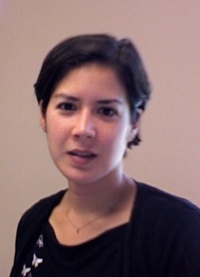
Date:
Location:
Title:
Abstract
π-Conjugated polymers are being used in the fabrication of a wide variety of organic electronic devices such as organic field-effect transistors (OFETs), organic photovoltaic (OPV) devices, and organic light-emitting diodes (OLEDs). Since the seminal work on the conductivity of polyacetylene by Heeger, MacDiarmid, and Shirakawa was published in 1970s, the field of organic electronics has grown exponentially. Our group has been studying and developing techniques to grow semiconducting polymers using a living polymerization method. This has allowed us to synthesize polymer architectures that we haven’t been able to access till now including polythiophene brushes, star-shaped P3HT, as well as hyperbranched P3HT. It also allows us to accurately control the molecular weights of P3HT and produce materials with a narrow molecular weight distribution. Our unique synthetic capabilities allows us to specifically control defects in these polymers. Our work in controlling polymer defects and their effect on microstructure and thus optoelectronic properties will be presented.
More recently, we have extended our ability to control and understand polymer structures to hybrid systems as well. The aliphatic ligands that are used to solubilize and stabilize the nanocrystals operate as a significant source of carbon impurities that are incorporated into the final device. Despite the ubiquity of this technique and the fact that carbon defects have been reported to be found across a spectrum of devices, the structure, properties, and influence of the carbon on PV device performance remain relatively unexplored. Our findings show that, depending on the ligand, the carbon impurities may be beneficial to the performance of devices.
Bio
Christine Luscombe grew up in Kobe, Japan. After receiving her Bachelor’s degree in Natural Sciences from the University of Cambridge in 2000, she worked with Profs. Andrew Holmes and Wilhelm Huck in the Melville Laboratory of Polymer Synthesis at the University of Cambridge where her research focused on surface modifications using supercritical carbon dioxide for her PhD. She received the Syngenta Award for best organic chemistry project for her PhD. In January 2004, she joined the group of Prof. Jean Fréchet for her post-doctoral studies where she began her research on semiconducting polymers for organic photovoltaics. She was the recipient of the Lindemann Fellowship as well as the Trinity College Junior Research Fellowship (University of Cambridge) for her post-doctoral studies.
In September 2006, she joined the Materials Science and Engineering Department at the University of Washington, Seattle. She received a number of young faculty awards including the NSF CAREER Award, DARPA Young Faculty Award, as well as the Sloan Research Fellowship. Her current research focuses on the synthesis of semiconducting polymers for energy applications. She served on the Editorial Advisory Board for Macromolecules and ACS Macro Letters, and is currently serving on the Editorial Advisory Boards for Polymer International, Advanced Electronic Materials, and Journal of Applied Physics. She is an Associate Editor for Journal of Materials Chemistry A, is serving on the IUPAC Polymer Education and Polymer Terminology Subcommittees, and is the Vice President of the IUPAC Polymer Division.
Hosted by Michael Chabinyc. Light refreshments served. Download event flyer.



